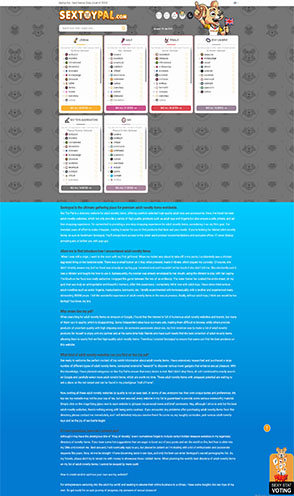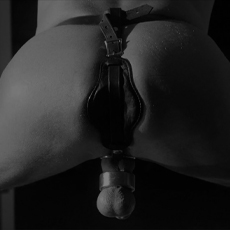
Have you ever woken up one morning, feeling like you’re ready to take on the world, only to find that your body isn’t cooperating in one of the most critical ways? For many men, this can be a confusing, disheartening, and even embarrassing problem that strikes without warning. But here's the truth: it's more common than most people think. Could it be just a sign of temporary fatigue, stress, or something deeper? Is it a fleeting problem or a sign of an underlying issue? You might ask yourself: what is erectile dysfunction, why does it happen, and what does it mean for me?Let’s unravel the truth behind this common issue.
What is Erectile Dysfunction?
Erectile dysfunction, often abbreviated as ED, is a condition where a man finds it difficult to achieve or maintain an erection sufficient for sexual intercourse. While it is common to think of erectile dysfunction as an older man’s problem, it’s important to understand that it can happen to men of any age. It is a complex condition that can result from a variety of physical, psychological, and lifestyle factors.
Many people mistakenly believe that erectile dysfunction is synonymous with "impotence" or that it marks the end of a man’s sexual life. However, erectile dysfunction does not equate to complete sexual inability. It is, in most cases, a manageable condition with several treatment options available. Understanding the root causes of erectile dysfunction is crucial for managing it effectively.
What are the symptoms of erectile dysfunction?
Erectile dysfunction, or ED, can show up in several frustrating ways that might leave you scratching your head or feeling a bit out of sorts. It's not always as simple as "it doesn’t work." In fact, erectile dysfunction can present itself with a range of symptoms that can vary from person to person. Let’s break down what these symptoms look like.
Difficulty Achieving an Erection
This is often the most noticeable sign. You’re in the mood, the moment feels right, but things just aren’t happening. This can be a one-off situation caused by stress, fatigue, or even a rough day. However, if it becomes a pattern—something that happens more often than not—then it’s worth paying attention to.
Trouble Maintaining an Erection
Perhaps you can get things started, but somewhere along the way, the erection doesn’t last. This can be incredibly frustrating, especially when you're in the middle of intimate moments. It might start off strong, but then it fades or disappears altogether. This is a common symptom of erectile dysfunction and can stem from a range of factors including anxiety, blood flow issues, or even relationship dynamics.
Reduced Sexual Desire
Sometimes, erectile dysfunction is not just about the mechanics but also the mind. A drop in libido or a lack of interest in sex could be linked to hormonal imbalances, stress, or psychological factors. When your desire takes a nosedive, it can become a vicious cycle where the worry about erectile dysfunction leads to even less interest in intimacy, further complicating the situation.
Partial Erections
Another symptom of erectile dysfunction can be the inability to achieve a full erection. You might get an erection that’s not quite firm enough for penetration or one that doesn’t last long enough to be satisfying. This can be confusing because it might seem like everything is working—just not quite the way it used to. It’s a sign that blood flow or other physiological processes might not be functioning optimally.
Morning Erections or Lack Thereof
Pay attention to morning erections, often referred to as “morning wood.” If you notice a sudden change in this regular occurrence—either a significant decrease or a complete stop—it might be an early sign of erectile dysfunction. Morning erections are a good indicator of general penile health and blood flow, so changes here can be an important clue.
Causes of Erectile Dysfunction

Erectile dysfunction (ED) can feel like a mysterious issue that comes out of nowhere, but the truth is, there are many potential causes behind it. Understanding these causes is key to addressing the problem effectively. While it might seem like a simple case of "not in the mood," erectile dysfunction often involves a complex interplay of physical, psychological, and lifestyle factors. Let's break down the most common culprits in a way that’s easy to digest.
Physical Causes of Erectile Dysfunction
At its core, an erection is a result of increased blood flow to the penis. When this process is disrupted, erectile dysfunction can occur. There are several physical reasons why this might happen:
Circulatory Issues: Conditions that affect blood flow, such as high blood pressure, high cholesterol, or atherosclerosis (hardening of the arteries), are some of the most common causes of erectile dysfunction. If the blood vessels leading to the penis are narrowed or blocked, achieving an erection becomes challenging.
Diabetes: Men with diabetes are more likely to experience erectile dysfunction because this condition can cause damage to the nerves and blood vessels that are crucial for an erection. In fact, erectile dysfunction might be one of the first signs that someone has diabetes.
Hormonal Imbalances: Low levels of testosterone or other hormonal issues can affect sexual desire and erectile function. Conditions like hyperthyroidism or hypothyroidism, and even certain medications, can disrupt hormone levels, leading to erectile dysfunction.
Neurological Disorders: The nervous system plays a vital role in achieving an erection. Conditions such as multiple sclerosis, Parkinson’s disease, and spinal cord injuries can interfere with the signals between the brain and the penis, resulting in erectile dysfunction.
Medications and Treatments: Certain medications, such as those for high blood pressure, depression, or chemotherapy for cancer, can have side effects that impact erectile function. Similarly, surgeries or treatments for prostate or bladder cancer can sometimes damage nerves or arteries needed for an erection.
Psychological Causes of Erectile Dysfunction
While physical health is a significant factor, the mind plays an equally crucial role in sexual function. Emotional and psychological states can heavily influence erectile performance:
Stress and Anxiety: Everyday stress—whether from work, financial concerns, or relationship troubles—can take a toll on sexual performance. Anxiety, particularly performance anxiety, can create a vicious cycle where fear of erectile dysfunction actually leads to its occurrence.
Depression: Depression doesn’t just affect your mood; it can also significantly lower libido and lead to erectile dysfunction. Sometimes, even the medications used to treat depression, like certain SSRIs, can contribute to the problem.
Relationship Problems: Issues such as poor communication, unresolved conflicts, or lack of intimacy with a partner can also manifest as erectile dysfunction. Sexual performance is often closely tied to emotional well-being within a relationship.
Lifestyle Causes of Erectile Dysfunction
Often overlooked, lifestyle choices can have a profound impact on erectile function. The good news is that these are often within one's control to change:
Poor Diet and Lack of Exercise: A diet high in fats and sugars and low in essential nutrients can lead to weight gain, high cholesterol, and heart disease—all of which are risk factors for erectile dysfunction. Similarly, lack of exercise can affect cardiovascular health and circulation.
Smoking and Alcohol Use: Smoking damages blood vessels and decreases blood flow to the penis, making erections difficult. Excessive alcohol use, on the other hand, can suppress the central nervous system, affecting sexual response.
Lack of Sleep: Believe it or not, poor sleep patterns or sleep disorders like sleep apnea can contribute to erectile dysfunction. Quality sleep is essential for maintaining healthy hormone levels and overall well-being.
How to Manage and Improve Erectile Dysfunction?

Lifestyle Adjustments
The first line of defense against erectile dysfunction often involves making healthier lifestyle choices. This includes maintaining a balanced diet rich in fruits, vegetables, and lean proteins, engaging in regular physical activity, and managing stress levels. Quitting smoking and reducing alcohol intake can also have a profound impact on improving erectile dysfunction. These changes not only improve overall health but also help restore normal erectile function.
Common Treatment Options
For those struggling with erectile dysfunction, several treatment options are available. Oral medications like sildenafil (Viagra) and tadalafil (Cialis) are commonly prescribed to help improve blood flow to the penis. In some cases, physical treatments such as vacuum erection devices, penile injections, or even surgery may be recommended. Psychological counseling is also an effective option for men whose erectile dysfunction is rooted in mental health issues like anxiety or depression. It’s crucial to work with a healthcare professional to determine the most suitable treatment based on individual needs.
Self-Management Tips
Open communication with a partner is vital for managing the emotional and psychological aspects of erectile dysfunction. Talking openly about erectile dysfunction can help reduce anxiety and build trust in a relationship. Building confidence through relaxation techniques, such as mindfulness or yoga, can also help alleviate stress and prevent the vicious cycle of anxiety-induced erectile dysfunction.
Tips for Preventing Erectile Dysfunction
Healthy Habits
Prevention is always better than cure. Adopting a healthy lifestyle can significantly reduce the risk of developing erectile dysfunction. This means maintaining a healthy weight, exercising regularly, eating a balanced diet, and avoiding harmful habits like smoking or excessive drinking. These changes not only benefit sexual health but overall well-being as well.
Early Detection and Intervention
Regular health check-ups can help detect potential health problems that might lead to erectile dysfunction. Conditions like diabetes or high blood pressure, when caught early, can be managed effectively to prevent the onset of erectile dysfunction. Men should not hesitate to seek medical advice if they notice any signs of erectile dysfunction, as early intervention can make a significant difference.
Mental Health
Stress management and maintaining mental well-being are crucial for preventing erectile dysfunction. High-stress levels, anxiety, and depression are closely linked to erectile dysfunction. Engaging in hobbies, practicing relaxation techniques, and seeking professional help when needed can all contribute to a healthier mental state and reduce the risk of erectile dysfunction.













 luvsenz
luvsenz  ssxdesire
ssxdesire  eesensual
eesensual  ssdelight
ssdelight  intilust
intilust  eeromance
eeromance  sintimatee
sintimatee  spassionn
spassionn  lustssx
lustssx  ssecstasy
ssecstasy  lesaria
lesaria  femles
femles  vibher
vibher  pleasurax
pleasurax  ecstasyedge
ecstasyedge  eroswave
eroswave  desiredock
desiredock  intimatenest
intimatenest  eroblend
eroblend  erofusion
erofusion  intrnest
intrnest  desirejunction
desirejunction  seductionnook
seductionnook  heroxt
heroxt  egoxt
egoxt  tactxl
tactxl  exxlust
exxlust  lustrefuge
lustrefuge  spleasurey
spleasurey  ettempt
ettempt 
 sensujoy
sensujoy  femmeflir
femmeflir  evetoux
evetoux 
 vavaxl
vavaxl  alluset
alluset  luvtempt
luvtempt  eroglee
eroglee 
 thrilltop
thrilltop  luvmale
luvmale  gayvib
gayvib 
 domcockring
domcockring 
 blissbondage
blissbondage  tribetether
tribetether  pridepunish
pridepunish  rainbowrough
rainbowrough  spectrumslave
spectrumslave 
 furyplug
furyplug 
 edgegaze
edgegaze 
 gayvibsextoy
gayvibsextoy